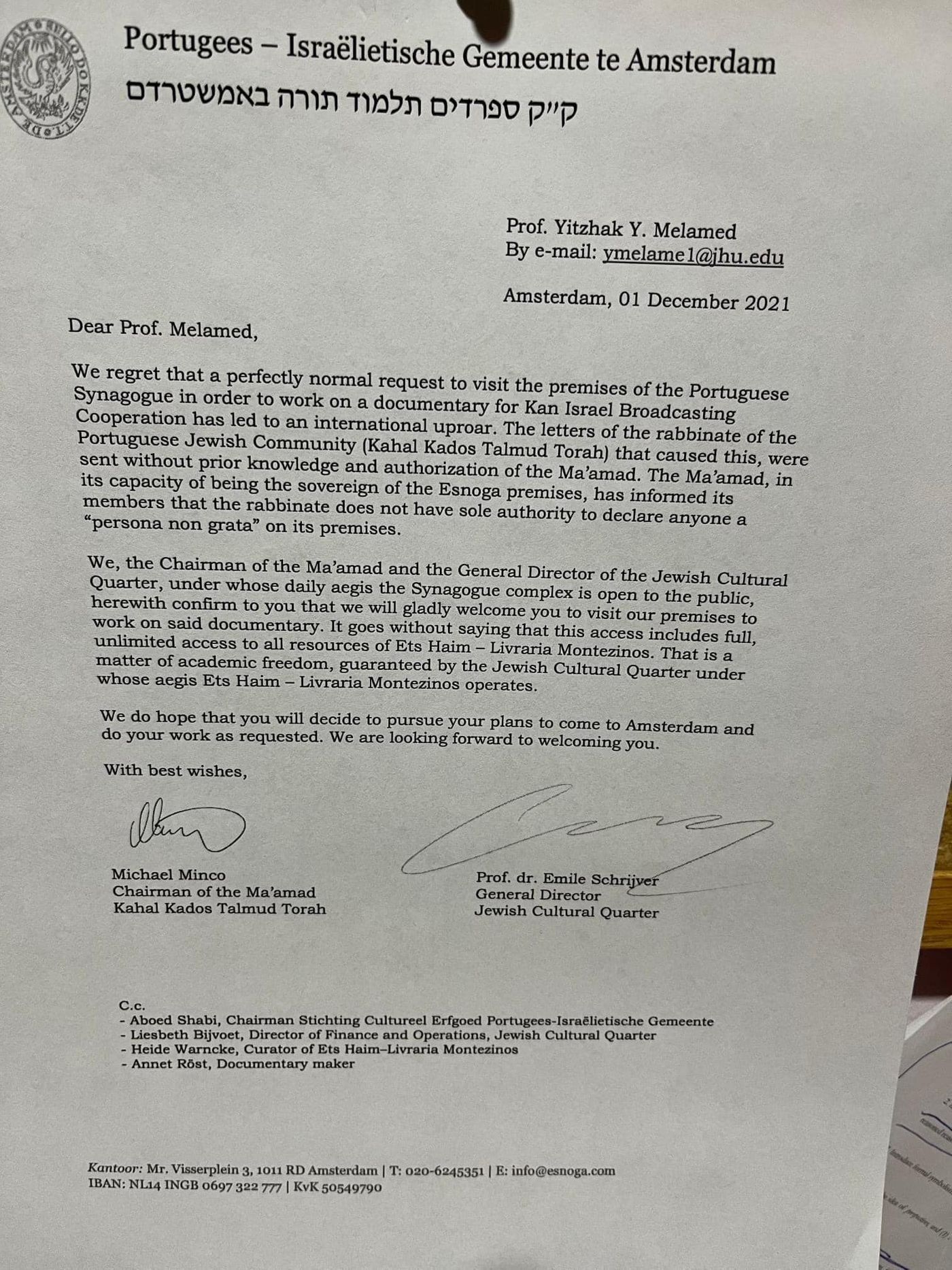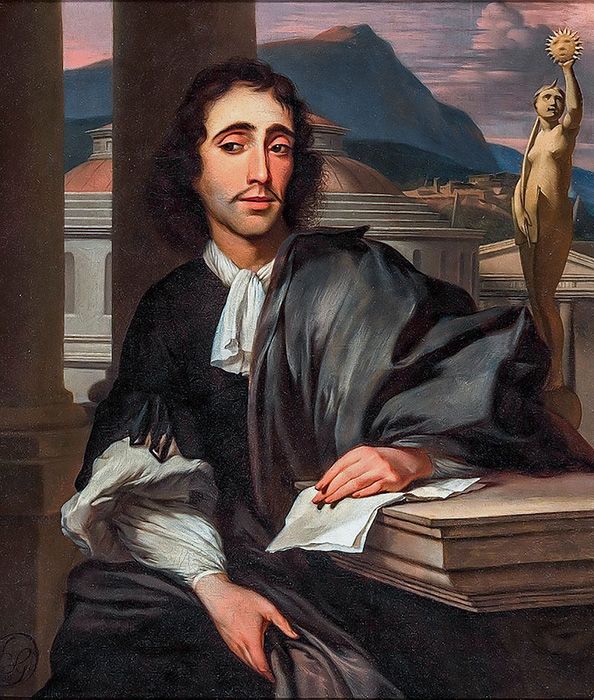god of philosophers
[Shuixiang Xiansi] Mei Lanmei smiled after receiving the letter, disapproving. Thought that letter was nothing more than a show of hypocrisy . Two days later, Rabbi and Jewish philosopher Nathan Lopes Cardozo published an open letter to Rabbi Sephardi in The Times of Israel, sternly condemning Sephardi's actions. , criticized its blasphemous name (חילול השם, chillul hashem) and brought shame to Orthodox Judaism, and called on local church leaders to correct it. He also pointed out in the letter that former Israeli chief Rabbi Herzog (Yitzhak HaLevi Herzog) had long since cleared his doubts that the order to expel Spinoza only took effect while he was alive.
On December 1, local church leaders Michael Minco and Emile Schrijver sent a letter to Meran Virtue, clarifying that Sephardi's decision was not approved by the Presbyterian Church and that the rabbis had no right to declare it privately. He is "persona non grata" (persona non grata). The two believe that Melanmede's application for filming is completely in line with the rules, so they welcome him to come and go freely. At the same time, Sephardi is reported to have also sent a letter to apologise to Merland, but Merland said he had received "fresh maledictions" from Sephardi.

As for why Spinoza was expelled from the Jewish church? Since there are not many archives available to reconstruct Spinoza's life, the matter remains doubtful .
His parents, who originally lived in Portugal, moved to Amsterdam, the Netherlands, to escape the rampant inquisition and gave birth to Spinoza in 1632. Spinoza grew up in the local Jewish community and received an education in traditional Jewish law. He lost his father in his early twenties and dropped out of studying business. At the age of twenty-three, in 1656, the local synagogue officially ordered the expulsion of Spinoza, but the documents detailing the reasons for the expulsion have been lost. In the existing archives, there is a summary written in Portuguese, revealing that the synagogue at the time accused Spinoza of evil words and deeds, and accused him of spreading heresy beliefs, and Spinoza was known to have not published any works at that time. According to legend, he immediately wrote an article explaining why he could not agree with Judaism, perhaps the origin of the book Tractatus Theologico-Politicus (Tractatus Theologico-Politicus). He has since changed to the Latin name "Benedictus" to call himself, instead of "Baruch" from the Hebrew, to signify the cut-off seat.

In addition, there is circumstantial evidence. In 1659, friar Tomás Solano y Robles and officer Miguel Pérez de Maltranilla were interrogated by the Spanish Inquisition in Madrid. Both confessed to frequent meetings in Amsterdam with people of questionable beliefs, including missionary Juan de Prado and young Spinoza. Both Prado and Spinoza are said to have been expelled from the Jewish Church for their disobedience of Jewish law, and both argued that the soul is immortal and that God can only exist as philosophy proves.
Like my work? Don't forget to support and clap, let me know that you are with me on the road of creation. Keep this enthusiasm together!
